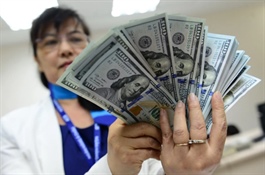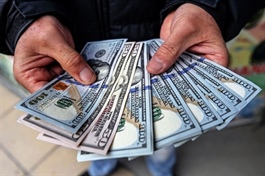Safeguards to be met with credit reform
Safeguards to be met with credit reform
Vietnam’s new banking reform regulations introduces stringent ownership limits for individual and organisational shareholders in credit institutions to mitigate risks associated with cross-ownership and enhance financial stability.

The pivotal amendments to the Law on Credit Institutions, effective from July 1, aim to enhance system safety as well as enforce more transparent lending practices across the banking sector.
Under the new law adopted two weeks ago by the National Assembly, individual shareholders are restricted to a maximum 5 per cent ownership in a credit institution’s charter capital, while an organisation’s limit is set at 10 per cent. Additionally, the combined ownership of shareholders and related persons is capped at 15 per cent.
“These measures are crucial for establishing a safeguard against the risks associated with cross-ownership,” noted a representative of An Binh Securities.
The new law also revises lending limits to individual customers, reducing the cap from 15 to 10 per cent of a bank’s own capital, and from 25 to 15 per cent for a customer and related parties.
“These changes will be implemented gradually, reaching the new thresholds by 2029. “This phased approach is designed to diversify credit portfolios, mitigating default risks and moral hazards,” he added.
Pham Van Thinh, member of the National Assembly Economic Committee, said, “These new ownership limits in the Law on Credit Institutions align with a global movement towards more secure and transparent banking practices, reducing the control of dominant shareholders or their related groups.”
The issue of cross-ownership in banking, a topic of concern for over a decade, remains a complex and evolving challenge for state regulators over the past few years.
“Addressing cross-ownership has been problematic for regulators, but the latest reforms are a significant step in tackling these issues,” Thinh noted. “By focusing on transparent ownership structures and limiting shareholder power, Vietnam’s banking reform is aimed at fostering greater accountability and stability.”
Banks exceeding these new limits must restructure their loan portfolios, potentially impacting credit availability for certain customer segments, said a senior analyst from Maybank Investment Bank.
“While the new law aims to limit concentrated lending, it could challenge banks’ ability to fund large-scale projects,” he said.
Key projects like Hoa Phat Group’s financing by Vietcombank or the Long Thanh International Airport project may necessitate more varied funding strategies under the new regulations.
“The reform is seen as a significant step towards aligning Vietnam’s banking practices with international standards, aiming to fortify the sector against financial instabilities,” the analyst added. “By enforcing these changes, Vietnam is promoting a more resilient banking system and enhancing transparency and public trust in financial institutions.”
Cao Viet Hung, director of Banking Analysis at ACBS Securities, added, “While larger banks with diversified lending and increased capital bases are well-positioned to absorb these changes, smaller and medium-sized institutions, especially those focused on corporate loans, could face challenges. Banks might need to overhaul their lending strategies to comply with the new law.”
On the other hand, the revised law mandates credit institutions intending to enter the securities and insurance markets to establish separate subsidiaries or form new, independent joint ventures, a move aimed at enhancing financial stability and diversification. This regulation requires approval from the State Bank of Vietnam (SBV) for such expansions.
Yuanta Securities Vietnam’s latest report also highlighted the impact of these changes, especially on the bancassurance sector, where banks like VIB and ACB have previously seen substantial earnings.
“Banks with a high dependency on bancassurance revenue will need a longer period to adjust and recover from these regulatory changes,” the brokerage noted. “The law also addresses systemic risks, as exemplified by the 2022 mass withdrawal incident at Saigon Commercial Joint Stock Bank (SCB). New provisions allow the SBV to intervene early in troubled institutions, especially those showing significant financial distress or non-compliance with liquidity and capital safety ratios.”
“Such pre-emptive measures are crucial to maintain depositor confidence and market stability in the face of potential future liquidity challenges,” Yuanta Securities added.


























